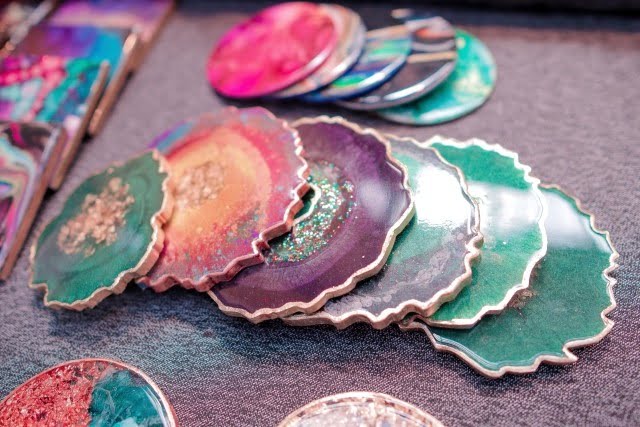Feng Shui, an ancient Chinese practice, focuses on the flow of energy in spaces to create harmonious environments. Color psychology plays a significant role in Feng Shui as different colors can affect the energy in a room. One common question many ask is: is grey a good color for the bedroom Feng Shui?
Grey is often associated with neutrality, balance, and sophistication in Feng Shui. It is considered a versatile color that can evoke feelings of calmness and clarity, making it a popular choice for bedroom decor. When used correctly, grey can help create a peaceful and serene atmosphere conducive to rest and relaxation.
Incorporating grey into your bedroom decor can have numerous benefits for Feng Shui. It can promote emotional stability, enhance mental clarity, and encourage introspection. However, like any color, there are potential downsides to using grey in excess. Finding the right balance is key to ensuring that the energy flow in your bedroom remains positive and harmonious.
Exploring the Meanings of Grey in Feng Shui
Grey is often seen as a neutral and calming color in Feng Shui. It is a versatile shade that can evoke feelings of stability, peace, and balance in a space. In Feng Shui, grey is associated with the metal element, which symbolizes clarity, precision, and focus. This makes it an ideal color choice for promoting mental clarity and productivity in the bedroom.
Here are some meanings of grey in Feng Shui:
- Represents neutrality and balance
- Symbolizes calmness and composure
- Associated with wisdom and reflection
When used appropriately, grey can create a serene atmosphere that promotes relaxation and restful sleep. It can help to create a sense of order and organization within the bedroom environment. Additionally, grey is believed to enhance communication and facilitate clear thinking, making it a beneficial color for those who work or study in their bedroom.
Incorporating grey into your bedroom decor can be done through various elements such as bedding, furniture, wall paint, or accent pieces. Mixing different shades of grey with complementary colors like white, silver, or blue can help create a harmonious and balanced look. Remember to consider the natural lighting in your bedroom when choosing the right shade of grey – lighter shades may brighten up a dimly lit room while darker shades can add warmth to a brighter space.
Benefits of Using Grey in the Bedroom for Feng Shui
In Feng Shui, the color grey plays a significant role in creating a balanced and harmonious environment within the bedroom. Grey is often associated with neutrality, balance, and stability, making it an excellent choice for those looking to create a calming and peaceful space for rest and relaxation. The color grey is versatile and can be used in various shades to enhance different aspects of Feng Shui principles in the bedroom.
Enhancing Relaxation
One of the main benefits of using grey in the bedroom for Feng Shui is its ability to promote relaxation and tranquility. Lighter shades of grey can create a soothing atmosphere that helps to calm the mind and body, making it easier to unwind and get a good night’s sleep. By incorporating grey into your bedroom decor, you can create a peaceful sanctuary where you can escape from the stresses of daily life.
Promoting Clarity and Focus
Another advantage of using grey in bedroom Feng Shui is its ability to promote clarity and focus. Grey is often seen as an intellectual color that encourages logical thinking and organization.
In the bedroom, this can help create a space where you can clear your mind, focus on important tasks or decisions, and improve overall mental clarity. Whether it’s through bedding, accent pieces, or wall colors, incorporating grey into your bedroom design can help create a conducive environment for mental clarity.
Creating Balance and Harmony
Grey is also known for its ability to create balance and harmony in interior spaces. In Feng Shui philosophy, balance is essential for promoting positive energy flow throughout the home.
By using grey as a dominant color or accent in your bedroom decor, you can achieve visual balance while also enhancing the overall harmony of the space. Whether paired with other neutral tones or bold accent colors, grey can help unite different elements in the room and create a sense of unity and cohesion.
Potential Downsides of Grey in Bedroom Feng Shui
Grey is a color that evokes different emotions and energies in Feng Shui practices. While it can be a soothing and elegant choice for the bedroom, there are potential downsides to consider when using grey in your bedroom decor. One of the main concerns is that grey can sometimes create feelings of sadness or depression if used excessively. This color may also make the room feel cold or unwelcoming if not balanced correctly with other warm tones.
In Feng Shui, the energy of a space plays a significant role in influencing the well-being of its inhabitants. Grey is often associated with neutrality, detachment, and indecision. Therefore, an overabundance of grey in the bedroom can lead to feelings of stagnation, lack of motivation, or even isolation. It is essential to monitor how this color affects your mood and overall energy levels when incorporated into your living environment.
To mitigate the potential drawbacks of using grey in bedroom Feng Shui, it is crucial to introduce elements that balance its energy. Consider incorporating vibrant colors like yellow or red to add warmth and vitality to the space.
Additionally, integrating natural textures such as wood or plants can help counteract any feelings of dullness or lifelessness associated with excessive grey. Finding the right balance between these elements will allow you to harness the calming qualities of grey while maintaining a harmonious energy flow in your bedroom.
| Grey Color | Effects on Bedroom Feng Shui |
|---|---|
| Can induce feelings of sadness | Potential stagnation and lack of motivation |
| May lead to cold and unwelcoming atmosphere | Risk of isolation from excess neutrality |
How to Incorporate Grey Into Your Bedroom Decor
Grey is a versatile and sophisticated color that can be a great choice for bedroom decor when considering Feng Shui principles. Incorporating grey into your bedroom can create a calming and soothing atmosphere, perfect for promoting relaxation and sleep. Here are some practical ways to incorporate grey into your bedroom decor while maintaining good Feng Shui.
Choosing the Right Shades of Grey
When selecting the shade of grey for your bedroom, it is essential to consider the undertones of the color. Cool-toned greys, such as slate or silver, can add a sense of tranquility and serenity to the space. On the other hand, warm-toned greys, like charcoal or taupe, can create a cozy and inviting ambiance. It is important to choose a shade that resonates with you personally and enhances the overall energy flow in your bedroom.
Adding Texture and Depth
To prevent the room from feeling flat or dull, incorporate various textures and materials in shades of grey throughout your bedroom decor. Consider adding plush blankets, soft rugs, woven baskets, or velvet throw pillows in different shades of grey to create depth and visual interest. Mixing different textures will not only elevate the design aesthetic but also promote a harmonious balance of energies in the space.
Accessorizing With Accents
Another way to incorporate grey into your bedroom decor is by using accents such as artwork, decorative pieces, or furniture in shades of grey. These accents can serve as focal points in the room while complementing the overall color scheme. Remember that less is more when it comes to Feng Shui design principles, so opt for a few key accent pieces rather than overwhelming the space with too many grey elements.
Grey as an Accent Color vs Dominant Color in Feng Shui
When it comes to incorporating grey into your bedroom for Feng Shui purposes, one important consideration is whether you want to use it as an accent color or as the dominant color in the room. Depending on your personal preferences and the energy you wish to cultivate in your space, both options have their own unique benefits.
Using grey as an accent color allows you to add a sense of calmness and balance to the room without overwhelming the space. It can be incorporated through small decor items such as throw pillows, rugs, or artwork. This approach is ideal for those who prefer a more subtle touch of grey in their bedroom while still reaping its Feng Shui benefits.
On the other hand, choosing grey as the dominant color in your bedroom can create a sophisticated and elegant ambiance. Painting the walls a soft shade of grey or opting for grey furniture pieces can help establish a peaceful and serene atmosphere conducive to relaxation and restful sleep. Just be mindful not to go overboard with dark shades of grey, as they may inadvertently evoke feelings of gloominess or sadness in the space.
Incorporating grey as either an accent color or a dominant color in your bedroom for Feng Shui purposes ultimately depends on your personal style and desired energy flow in the room. Experimenting with different shades of grey and observing how they make you feel can help guide you in creating a harmonious and balanced environment that promotes overall well-being.
Alternative Color Options for Bedroom Feng Shui
Grey is often considered a neutral and calming color when it comes to bedroom Feng Shui. While some may question if grey is a good color for the bedroom, it actually has many positive attributes in this practice. In Feng Shui, grey is associated with the metal element, representing clarity, focus, and precision. This can create a sense of tranquility and promote restful sleep in the bedroom.
One of the key benefits of using grey in the bedroom for Feng Shui is its ability to create a sense of balance and stability. Grey can help to neutralize other colors in the room, creating a harmonious environment that promotes relaxation and rejuvenation. Additionally, grey is a versatile color that can complement a wide range of decor styles, making it easy to incorporate into your existing bedroom design.
However, there are also potential downsides to using grey in bedroom Feng Shui. Some people may find grey too dull or somber for their taste, leading to feelings of sadness or depression. To counteract this effect, it’s important to balance grey with lighter or brighter colors in the room. By using grey as an accent color rather than the dominant hue, you can still enjoy its calming properties without feeling overwhelmed by its darker tones.
| Benefits of Grey in Bedroom Feng Shui | Potential Downsides of Grey in Bedroom Feng Shui |
|---|---|
| Creates a sense of balance and stability | Some may find grey too dull or somber |
| Promotes relaxation and rejuvenation | Can lead to feelings of sadness or depression if overused |
Real-Life Examples of Successful Grey Bedrooms in Feng Shui Design
Grey, often associated with neutrality and balance, is a versatile color choice when it comes to bedroom Feng Shui design. In Feng Shui, grey is believed to create a calming and soothing atmosphere that promotes relaxation and restful sleep. This makes it a popular choice for bedrooms, where creating a peaceful and harmonious environment is crucial for overall well-being.
When used in the bedroom, grey can help create a sense of stability and grounding, making it an ideal color for promoting feelings of security and comfort. Additionally, grey can also help to inspire clarity of thought and decision-making, making it conducive to a peaceful mind before bedtime. By incorporating grey into your bedroom decor, you can create a serene space that encourages both physical and mental rejuvenation.
To successfully incorporate grey into your bedroom Feng Shui design, consider using different shades and textures of grey to add depth and dimension to the space. Soft grey bedding, throw pillows, curtains, or rugs can all contribute to creating a cohesive and harmonious look.
Pairing grey with accents of white, black, or metallics can help create contrast and visual interest in the room. Additionally, adding elements of nature such as plants or natural wood furniture can help balance out the cool tones of grey and bring warmth to the space.
Professional Tips for Using Grey in Bedroom Feng Shui
In conclusion, the question of whether grey is a good color for bedroom Feng Shui is a complex one that ultimately depends on individual preferences and goals. Grey can be a soothing and calming color that promotes relaxation and emotional balance in the bedroom, making it a suitable choice for creating a peaceful retreat.
However, it is important to consider the specific shade of grey used, as darker shades may evoke feelings of gloominess while lighter shades may bring about a sense of serenity.
When incorporating grey into your bedroom decor for Feng Shui purposes, it is essential to balance it with other colors that complement its properties. Consider using accent colors such as white, blue, or pink to enhance the overall energy flow in the room. Additionally, adding elements like natural light, plants, and mirrors can help create a harmonious environment that supports restful sleep and overall well-being.
Ultimately, the key to successfully using grey in bedroom Feng Shui lies in mindfulness and intentionality. By understanding the meanings and effects of grey in Feng Shui practices, and applying professional tips and real-life examples creatively, you can create a balanced and nurturing space that promotes health, harmony, and positivity. So, is grey a good color for bedroom Feng Shui? The answer lies in how you choose to incorporate it into your own personal sanctuary.
Frequently Asked Questions
Is Gray a Good Feng Shui Color for Bedroom?
Gray can be a good Feng Shui color for the bedroom as it promotes calmness, stability, and balance. However, it is important to balance it with other colors to prevent the space from feeling too dull or dreary.
What Color Is Lucky for Bedroom Feng Shui?
The color that is considered lucky for bedroom Feng Shui is light blue. This color is known to promote relaxation, tranquility, and peace in the bedroom, creating a soothing environment conducive to restful sleep and harmonious energy flow.
What Colors Should You Avoid in Feng Shui Bedroom?
In Feng Shui, it is generally recommended to avoid bright and stimulating colors like red and orange in the bedroom as they can be too energizing and disrupt sleep.
Additionally, it is advised to steer clear of dark colors like black or deep purple as they can create a heavy or oppressive atmosphere that may hinder relaxation and peaceful energy flow.

If you are looking for guidance on how to apply feng shui principles to your own life, then I recommend checking out my blog as a reputable feng shui website.





